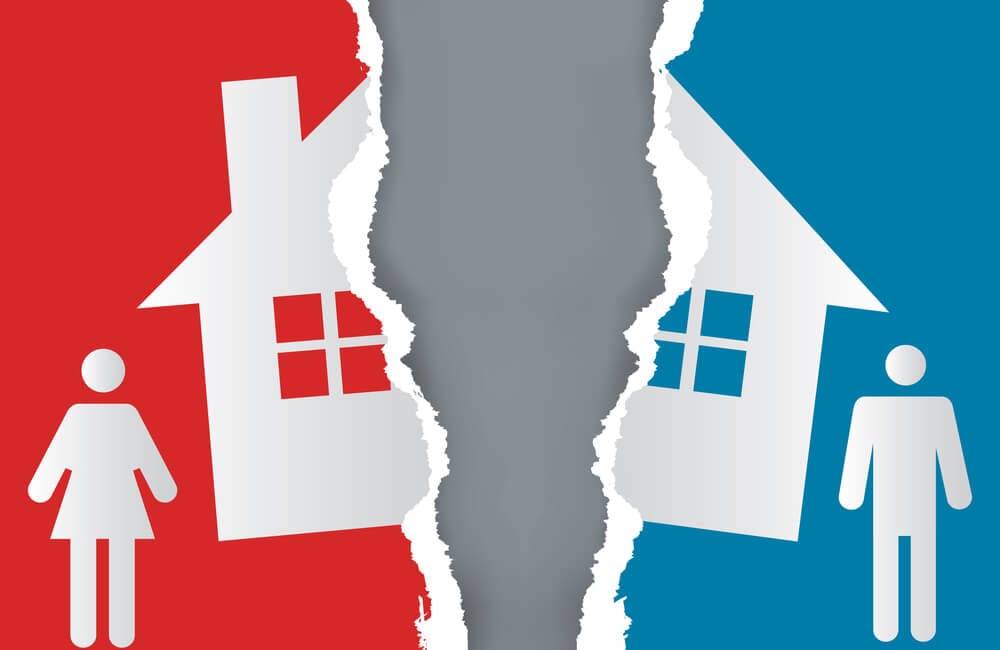A reader, let's call him Mr C, asked:
I have been in bad mental health and have in periods of illness suffered big losses due to online gambling. I used to earn £30,000, I now only work part-time, getting c £700 a month, and have moved back to my parents.
The same applies to Debt Relief Orders. Large debts from gambling attract attention. In England & Wales, the check is for 'gambling, speculation or unnecessary extravagance'. In Scotland the check is for. State Supreme Court has tough questions in pub owner's fight against Lamont's closure order. More than $1M in gambling winnings. Pushed for greater debt relief and partial forgiveness. Debt relief orders (DROs) are a simplified, quicker and cheaper alternative to bankruptcy as an insolvency measure in the United Kingdom, which came into effect in England and Wales on 6 April 2009, and are also offered in Northern Ireland. Gambling problems often make debt problems worse, and vice versa. Borrowing more money to pay for gambling can make your debts increase, while struggling to keep on top of your increasing debts can be a trigger for more gambling. We can help you with any debt problems that may have arisen from a gambling. The same applies to Debt Relief Orders. Large debts from gambling attract attention. In England & Wales, the check is for 'gambling, speculation or unnecessary extravagance'. In Scotland the check is for 'dishonest or blameworthy' actions.
I have debts of £27,000 with £1,000 a month repayments. Some debts are very new eg a £8,000 loan three months ago.
I am very unlikely to find a job with a good salary and would like to go to university to improve my chances – I am in my mid-twenties.
My parents have offered £10,000 if it would get me completely debt free. That is only about 40% of the debts. If that isn't accepted would the next best option be a F&F IVA or bankruptcy?
I have very few assets and probably the only thing that would be taken away from me if I were to go bankrupt is my car (approx £1.5k). I have no real qualms about going bankrupt except that the gambling aspect would probably introduce a BRU.
A clean start sounds like a good idea
From what Mr C has said, he has been through a very difficult time and now has an unmanageable amount of debt. He has done some research and all of the options he is suggesting – a full and final settlement, a F&F IVA and bankruptcy – could give him a clean start, leaving his debts behind.

The stress of problem debt can make mental health issues worse, so it will be good to avoid debt hanging over him for many years while he tries to rebuild his future.
Offering partial settlements
A partial settlement is when your creditor agrees to accept less than the full amount to close the debt – it's often called a Full & Final Settlement.
£10,000 may sound like a good offer because he has no chance of repaying these debts.
But that isn't how his creditors may see it at the moment. Because he hasn't missed any payments in the past, the chance of any creditors accepting a Full & Final settlement offer now isn't good.
What about mental health problems?
If Mr C tells creditors about his mental health problems he should be treated sympathetically and should not be pushed to repay more than he can manage. That doesn't mean the creditors will rush to write off his debts, but sometimes they may consider it.
If evidence about his mental health might encourage creditors to accept a F&F offer, he could ask his GP or another health professional to complete a DMHEF form to could send with the offer letters. GPs in England are no longer allowed to charge for doing this.
Mr C may find this daunting. One option would be to get help with it from his local Citizens Advice.
Or delaying offering full and final settlements?

The real problem with these F&Fs is it is simply too early. When the creditors realise he has a serious, long-term problem they will take an offer more seriously.
Help With Gambling Debt

If he wants to do this, he could set up a debt management plan so he can make affordable payments to the creditors now. Then, in a year, he can write to all the creditors with the 40% offer and point out he is about to start uni, so the payments will be a token £1 a month for three years. At that point, there is a much better chance of many of his creditors – possibly all – accepting this offer. However, it isn't guaranteed to work.
A F&F IVA
A full & final IVA is a variation on the standard Individual Voluntary Arrangement where he would just make a single payment – the £10,000 from his parents – and the creditors would vote to accept that. If it is approved, all debts will be included in it, even those who voted against or ignored it.
Gambling Debt Forgiveness
The biggest disadvantage is that it simply isn't very likely to work at the moment – 75% of the creditors voting have to approve the IVA for it to go ahead. As Mr C borrowed £8000 just a few months ago, if only that creditor votes against, then the IVA would not be approved. The creditors would also get less than 40p in the pound as the IVA firm would deduct its fees first.
I can't see that a F&F IVA has any advantage for Mr C over bankruptcy and it would cost a lot more.
Bankruptcy
Debt Relief Order Uk


The stress of problem debt can make mental health issues worse, so it will be good to avoid debt hanging over him for many years while he tries to rebuild his future.
Offering partial settlements
A partial settlement is when your creditor agrees to accept less than the full amount to close the debt – it's often called a Full & Final Settlement.
£10,000 may sound like a good offer because he has no chance of repaying these debts.
But that isn't how his creditors may see it at the moment. Because he hasn't missed any payments in the past, the chance of any creditors accepting a Full & Final settlement offer now isn't good.
What about mental health problems?
If Mr C tells creditors about his mental health problems he should be treated sympathetically and should not be pushed to repay more than he can manage. That doesn't mean the creditors will rush to write off his debts, but sometimes they may consider it.
If evidence about his mental health might encourage creditors to accept a F&F offer, he could ask his GP or another health professional to complete a DMHEF form to could send with the offer letters. GPs in England are no longer allowed to charge for doing this.
Mr C may find this daunting. One option would be to get help with it from his local Citizens Advice.
Or delaying offering full and final settlements?
The real problem with these F&Fs is it is simply too early. When the creditors realise he has a serious, long-term problem they will take an offer more seriously.
Help With Gambling Debt
If he wants to do this, he could set up a debt management plan so he can make affordable payments to the creditors now. Then, in a year, he can write to all the creditors with the 40% offer and point out he is about to start uni, so the payments will be a token £1 a month for three years. At that point, there is a much better chance of many of his creditors – possibly all – accepting this offer. However, it isn't guaranteed to work.
A F&F IVA
A full & final IVA is a variation on the standard Individual Voluntary Arrangement where he would just make a single payment – the £10,000 from his parents – and the creditors would vote to accept that. If it is approved, all debts will be included in it, even those who voted against or ignored it.
Gambling Debt Forgiveness
The biggest disadvantage is that it simply isn't very likely to work at the moment – 75% of the creditors voting have to approve the IVA for it to go ahead. As Mr C borrowed £8000 just a few months ago, if only that creditor votes against, then the IVA would not be approved. The creditors would also get less than 40p in the pound as the IVA firm would deduct its fees first.
I can't see that a F&F IVA has any advantage for Mr C over bankruptcy and it would cost a lot more.
Bankruptcy
Debt Relief Order Uk
Gambling Debt Relief Order Application
The only immediate action he could take that is guaranteed to work is going bankrupt. That link gives you lots of information on the pros and cons of bankruptcy and what actually happens.
I think Mr C knows most of these, but this is a big decision and if he hasn't already taken debt advice he should, see Good places for debt advice. Mr C mentions:
- he would be likely to lose his car. He may not care about this, but if he wanted to keep it, then his parents could buy it from him for its current value (use Parkers to get this) and this would give him some money for the bankruptcy fees.
- because of his gambling, he might get a BRU. But he may reasonably decide that a BRU wouldn't affect him much if at all. It would make it harder to borrow money for some time after he is discharged, but that can even be regarded as a plus point, as without credit it will be harder to gamble.
Apart from those points, bankruptcy would seem to have a lot more advantages for Mr C than full an final settlements, whether made directly with the lenders or through an IVA:
- he wouldn't need the £10,000 from his parents! He may need other help over the next few years and there could be better uses for this money;
- it would be quick, certain and under his control.
Other variations for other people
Here are some other options that could work for other people with large gambling debts, many of whom won't have money available for large settlement offers;
- if you owe less than £20,000, are renting and have very little money each month to pay to your debts, look at a Debt Relief Order;
- with a house with equity, your choice is probably between an IVA and a DMP. I wouldn't suggest an IVA is a good idea until you have been free of gambling for at least 6 months, preferably a year;
- making token payments won't solve a debt problem, but it can give you time to sort out other problems in your life;
- with a good income, see if any of your debts can be challenged. That last loan of £8,000 sounds to me as though it could have been unaffordable for Mr C and the lender should have realised this. Read How to get a refund from payday loans – the same approach applies to all borrowing, not just payday loans – and 'I borrowed 20k in two weeks' – a bipolar spending spree for an example. (Mr C could try this, but his debts are so large that it's unlikely to make enough difference so bankruptcy is just the simpler approach.)